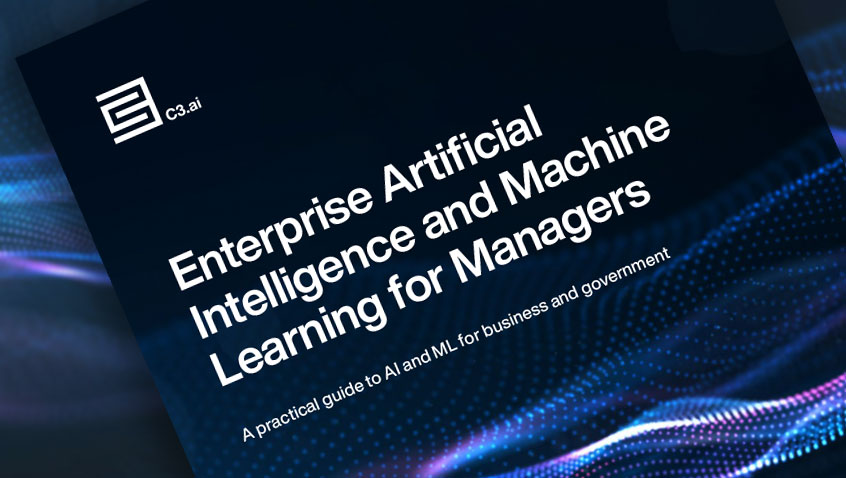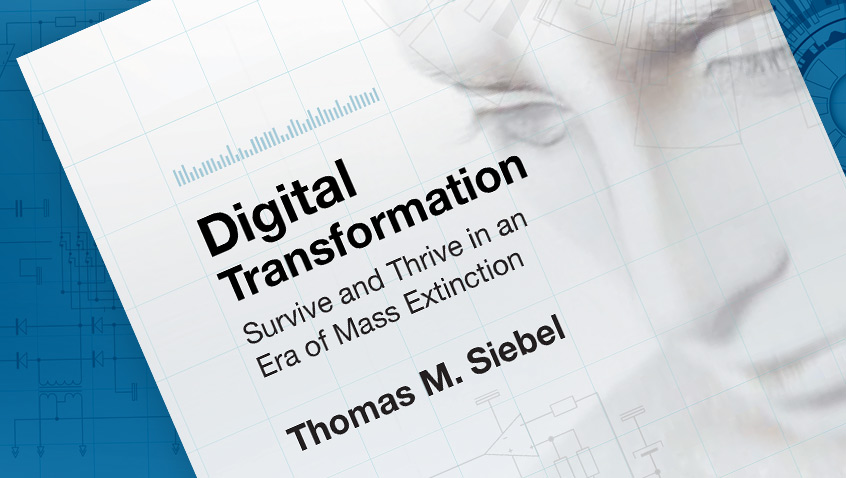- AI Software
- C3 AI Applications
- C3 AI Applications Overview
- C3 AI Anti-Money Laundering
- C3 AI Cash Management
- C3 AI Contested Logistics
- C3 AI CRM
- C3 AI Decision Advantage
- C3 AI Demand Forecasting
- C3 AI Energy Management
- C3 AI ESG
- C3 AI Health
- C3 AI Intelligence Analysis
- C3 AI Inventory Optimization
- C3 AI Process Optimization
- C3 AI Production Schedule Optimization
- C3 AI Property Appraisal
- C3 AI Readiness
- C3 AI Reliability
- C3 AI Smart Lending
- C3 AI Supply Network Risk – bak
- C3 AI Turnaround Optimization
- C3 Generative AI Constituent Services
- C3 Law Enforcement
- C3 Agentic AI Platform
- C3 Generative AI
- Get Started with a C3 AI Pilot
- Industries
- Customers
- Events
- Resources
- Generative AI for Business
- Generative AI for Business
- C3 Generative AI: How Is It Unique?
- Reimagining the Enterprise with AI
- What To Consider When Using Generative AI
- Why Generative AI Is ‘Like the Internet Circa 1996’
- Can the Generative AI Hallucination Problem be Overcome?
- Transforming Healthcare Operations with Generative AI
- Data Avalanche to Strategic Advantage: Generative AI in Supply Chains
- Supply Chains for a Dangerous World: ‘Flexible, Resilient, Powered by AI’
- LLMs Pose Major Security Risks, Serving As ‘Attack Vectors’
- What Is Enterprise AI?
- Machine Learning
- Introduction
- What is Machine Learning?
- Tuning a Machine Learning Model
- Evaluating Model Performance
- Runtimes and Compute Requirements
- Selecting the Right AI/ML Problems
- Best Practices in Prototyping
- Best Practices in Ongoing Operations
- Building a Strong Team
- About the Author
- References
- Download eBook
- All Resources
- Publications
- Customer Viewpoints
- Blog
- Glossary
- Developer Portal
- Generative AI for Business
- News
- Company
- Contact Us
Glossary
- Artificial Intelligence
- AI Agents
- AI in Finance
- AI in Manufacturing
- Anomaly Detection
- Anti-Money Laundering
- Asset Performance Management
- Asset Reliability
- Demand Forecasting
- Digital Disruption
- Digital Transformation
- Digital Twin
- Elastic Cloud Computing
- Energy Management
- Enterprise AI
- Enterprise AI Platform
- Ethical AI
- Inventory Planning
- IoT Platform
- Know Your Customer (KYC)
- Machine Vision (Computer Vision)
- Model-Driven Architecture
- Multi-Cloud
- No Code
- Predictive Analytics
- Predictive Maintenance
- Process Optimization
- Production Scheduling
- Stochastic Optimization
- Supply Chain Management
- Type System
- Data Unification & Management
- Machine Learning (A to L)
- Artificial General Intelligence
- Bias
- Canonical Schema
- Canonical Transform
- Classification
- Classifier
- Classifier Performance
- Clustering
- Coefficient of Discrimination, R-Squared (R2)
- Convolutional Neural Network (CNN)
- Correlation
- Data Cleansing
- Data Labels
- Data Lineage
- Deep Learning
- Dimensionality Reduction
- Explainable AI
- F1 Score
- False Positive Rate
- Feature Engineering
- Feedback Loop
- Field Validation
- Gaussian Mixture Model (GMM)
- Generalized Linear Models
- Gradient-Boosted Decision Trees (GBDT)
- Features
- Ground Truth
- Holdout Data
- Hyperparameters
- Information Leakage
- LIME: Local Interpretable Model-Agnostic Explanations
- Linear Regression
- Loss Function
- Low-Dimensional Representation
- Machine Learning (M to Z)
- Mean Absolute Error
- Mean Absolute Percent Error
- Machine Learning Pipeline
- Model Drift
- Model Prototyping
- Model Training
- Model Validation
- Normalization
- Overfitting
- Precision
- Problem Tractability
- Random Forest
- Recall
- Receiver Operating Characteristic (ROC) Curve
- Regression Performance
- Regularization
- Reinforcement Learning
- Reporting Bias
- Ridge Regression
- Root Mean Square Error (RMSE)
- Selection Bias
- Shapley Values
- Supervised Machine Learning
- Tree-Based Models
- Underfitting
- Unsupervised Machine Learning
- XGBoost
Unsupervised Machine Learning
What is Unsupervised Machine Learning?
Unsupervised Machine Learning discovers patterns within an existing set of data without pre-existing labels or categories. Generally, unsupervised learning evaluates the data to find clusters with a similar set of values sufficiently different than other clusters, enabling new data to be categorized into an existing cluster.
Why is Unsupervised Machine Learning important?
Unsupervised Machine Learning has a couple of advantages over supervised learning, in that it does not require a labeled set of training data, and that it can discover unknown or unexpected relationships in data not previously identified by human observation. This is particularly useful when trying to characterize subsegments or microsegments of a population to discover buying behavior or health issues using a large number of input variables.
How C3 AI Enables Organizations to Use Unsupervised Machine Learning
C3 AI makes it easy to apply unsupervised machine learning models to address domain-specific applications of AI to deliver business value today. The C3 AI Platform is a complete, end-to-end platform for designing, developing, deploying, and operating enterprise AI applications at industrial scale. The C3 AI ML Pipelines feature enables data scientists to easily build pipelines of different models to create complex analytic workflows, combining techniques from different domains to produce a more sophisticated result. For example, one could use image recognition to translate a complex diagram into its constituent components and labels, then match the labels to a database bill of materials, connect to available sensor data, build a model to predict potential failures hours or days in advance, and create work orders for provisioning replacement parts to address the issue during a maintenance window.



